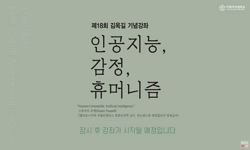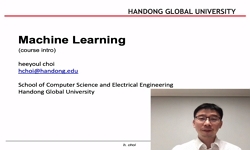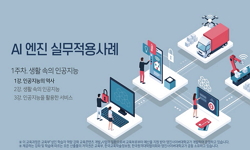This qualitative study delves into the collaboration experiences of programmers with Artificial Intelligence (AI) in programming, with a focus on key aspects like usability, workload, trust, and learning. Programmers were assigned coding tasks using C...
http://chineseinput.net/에서 pinyin(병음)방식으로 중국어를 변환할 수 있습니다.
변환된 중국어를 복사하여 사용하시면 됩니다.
- 中文 을 입력하시려면 zhongwen을 입력하시고 space를누르시면됩니다.
- 北京 을 입력하시려면 beijing을 입력하시고 space를 누르시면 됩니다.
https://www.riss.kr/link?id=A108729645
- 저자
- 발행기관
- 학술지명
- 권호사항
-
발행연도
2023
-
작성언어
English
- 주제어
-
등재정보
KCI등재
-
자료형태
학술저널
-
수록면
839-860(22쪽)
- DOI식별코드
- 제공처
-
0
상세조회 -
0
다운로드
부가정보
다국어 초록 (Multilingual Abstract)
This qualitative study delves into the collaboration experiences of programmers with Artificial Intelligence (AI) in programming, with a focus on key aspects like usability, workload, trust, and learning. Programmers were assigned coding tasks using Copilot, an AI tool, and interviewed to gather their feedback. Effective communication emerges as a pivotal factor in ensuring successful human-AI collaboration. The AI system should grasp intentions, offer accurate code suggestions, provide transparent explanations, and handle errors akin to a human partner. To enhance the programmer's experience with AI-assisted pair programming, the study presents a framework that prioritizes improved communication, code suggestions, explanations, and error resolution. This framework promises to yield a more productive and rewarding experience with AI. The research provides valuable user perspectives, deepening our understanding of AI-assisted pair programming dynamics. Moreover, it lays the groundwork for future AI developments, particularly in supporting programmers. Given the continuous advancements in AI, human-AI collaboration holds tremendous potential to boost productivity and innovation in software development. Leveraging AI's capabilities in programming can unlock greater efficiency and creativity, heralding a promising future for AI integration in the field. Through this investigation, we gain insights that pave the way for a more seamless and productive collaboration between programmers and AI systems. This contributes to the advancement of AI applications in programming domains.
동일학술지(권/호) 다른 논문
-
대인 및 기술 신뢰가 Z세대 중·고등학생의 학교교육 필요성 인식에 미치는 영향: 온라인 교육에 대한 태도의 매개효과를 중심으로
- 한국지식정보기술학회
- 허영주
- 2023
- KCI등재
-
A Study on Korea Food Recommendation Service Using Big Data Analysis
- 한국지식정보기술학회
- 김영수
- 2023
- KCI등재
-
세대에 따른 워라밸 인식차이 분석 : 공무원 조직을 중심으로
- 한국지식정보기술학회
- 한승조
- 2023
- KCI등재
-
행동탐지요원의 훈련체계 정립 및 특별사법경찰관으로서의 활용방안
- 한국지식정보기술학회
- 송제환
- 2023
- KCI등재






 KCI
KCI






